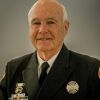Networking has always been a great way to learn new or hone existing leadership skills. Networking in the fire service is essentially a way to meet with up-and-coming or experienced individuals, share thoughts on a given subject, and take away new ideas or perspectives on universal issues.
6 opportunities for information exchange
While I was at the recent Fire-Rescue International conference in Atlanta, I had six networking experiences in just three days.
Shortly after I arrived at the convention center on Thursday, I met with Dave Moore, a good friend, a former fire chief in a neighboring community and now executive director of the Africa Fire Mission (AFM) – a firefighter-based organization that brings fire training and equipment to fire brigades in Africa and, most recently, Eastern Europe.
Dave invited me to a gathering designed to bring together some of the smaller fire service groups, such as AFM, to meet each other, foster cooperation and brainstorm ideas. Ironically, as I left my hotel and headed to the Uber stand, I found two other conference attendees, each going to separate networking opportunities at other venues. We shared the ride and spoke a bit in the car, briefly exchanging some ideas and contact information.
The gathering I attended was sponsored by Darley and held at a restaurant named The Cooking School, which was as eclectic as the diverse fire service organizations represented. For example, in addition to the Africa Fire Mission, I met with groups from the Fire Fighter Cancer Foundation (FFCF), Smart Firefighting and FirstNet. (See the recent Fire Chief Digital Edition, Fire Service Connectivity in Action, about how fire chiefs can implement FirstNet.)
I spent time with each of these groups but had one of the most informative sessions with the FFCF group, hearing about their recent research on cancer among wildland firefighters. In recent years, there has been a delayed reaction among some wildland firefighters where they are actually sweating soot out of their pores. In some cases, these firefighters worked 18-hour days on the line for up to two weeks, come back to base camp to eat and sleep, but did not have the ability to shower or wash their PPE and work clothes. After their sleep cycle, they put on the same contaminated clothes and gear for another 18-hour stint. The result were symptoms of cancer that few had seen before.
In another study, the FFCF found that wildland firefighters were facing structural or even industrial fire conditions with only wildland fire gear, that is, no SCBA or additional respiratory protection, and no structural PPE. Each of these issues were new to me but are certainly deserving of my additional attention as we bring the issue of the growing firefighter cancer rate to the public and governmental representatives.
On the way back to the hotel, I again shared an Uber ride, this time with a member of the IAFC’s Government Relations/Policy team, and had an opportunity to hear all that this unit was doing to keep our fire service needs in front of members of the House, Senate and Executive branch of the federal government, including the recent passage of the 9/11 Victim Compensation Fund legislation.
On Friday morning, I attended a FireRecue1/Fire Chief editorial meeting to discuss our ideas on what will be the most pressing fire service issues coming in 2020. This group included approximately 20 participants both at the conference and on a pre-arranged conference call. The ideas and issues exchanged were phenomenal.
Later that day, after conference hours, a group that the IAFC called their “movers and shakers” – about 40 fire service personnel from volunteer, combination and career departments – was asked to brainstorm and discuss the most relevant issues facing the fire service. This led to a great discussion on how we can keep the fire service relevant to both our public officials and our citizens on our growing budgetary needs. We also discussed the recruitment and retention of volunteers, and the need for diversity in all our departments for the communities we serve.
As another twist of fate, I raised a question to this group on the possibility of recruiting high schools students from both regular and vocational curriculums into the fire service, only to find that my friend Chief Steve Kelly of the Miami Township (Clermont County, Ohio) was also an attendee, and had in operation for two years a high school intern program. Steve and I laughed afterward that I had traveled 500 miles to learn the success of a program 35 miles away from my department. But that’s the essence of networking.
My final opportunity for networking came on Saturday morning when I made a presentation entitled “The U.S. Fire Service Role in Disaster Preparedness, Response and Mitigation.” Although Saturday is often considered by some to be a “sleep-in day” at conferences, I had over 50 attendees not only listen to the presentation but also eagerly ask questions. In fact, the session ran about 15 minutes overtime, but the next speaker had signaled to me that it was OK to extend our session a bit to accommodate the many questions.
Rejuvenated for what’s ahead
I left Fire-Rescue International enthused, rejuvenated and refreshed by the new people, new ideas and new organizations that I had connected with. Once again the power of networking had helped invigorate me to handle the next leadership challenges we might face in the fire service.
Stay safe!













